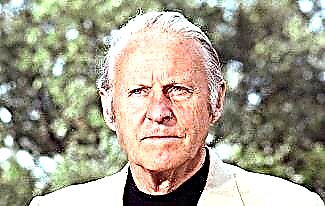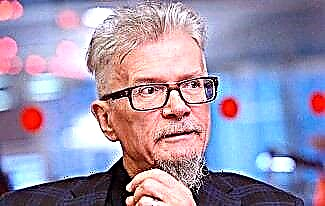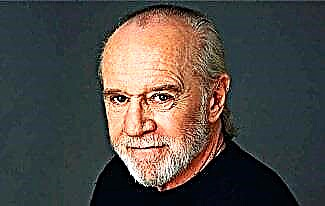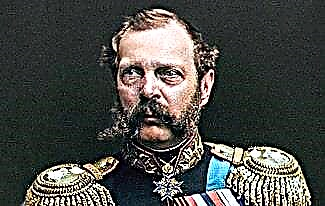Erich Seligmann Fromm - German sociologist, philosopher, psychologist, psychoanalyst, representative of the Frankfurt School, one of the founders of neo-Freudianism and Freudomarxism. All his life he devoted to the study of the subconscious and understanding the contradictions of human existence in the world.
In the biography of Erich Fromm, there are many interesting facts from his personal and scientific life.
We bring to your attention a short biography of Erich Fromm.

Biography of Erich Fromm
Erich Fromm was born on March 23, 1900 in Frankfurt am Main. He grew up and was raised in a family of devout Jews.
His father, Naftali Fromm, was the owner of a wine shop. Mother, Rosa Krause, was the daughter of emigrants from Poznan (at that time Prussia).
Childhood and youth
Erich went to school, where, in addition to traditional disciplines, children were taught the basics of doctrine and religious foundations.
All members of the family adhered to the basic precepts associated with religion. The parents wanted their only son to become a rabbi in the future.
After receiving a school certificate, the young man entered the University of Heidelberg.
At the age of 22, Fromm defended his doctoral dissertation, after which he continued his studies in Germany, at the Institute of Psychoanalytics.
Philosophy
In the mid-1920s, Erich Fromm became a psychoanalyst. He soon took up private practice, which continued for 35 long years.
Over the years of his biography, Fromm managed to communicate with thousands of patients, trying to penetrate and understand their subconscious.

The doctor managed to collect a lot of useful material, which allowed him to study in detail the biological and social characteristics of the formation of the human psyche.
In the period 1929-1935. Erich Fromm was engaged in research and classification of his observations. At the same time, he wrote his first works, which spoke about the methods and tasks of psychology.
In 1933, when the National Socialists came to power, led by Adolf Hitler, Erich was forced to flee to Switzerland. A year later, he decided to leave for the United States.
Once in America, the man taught psychology and sociology at Columbia University.
Immediately after the end of World War II (1939-1945), the philosopher became the founder of the William White Institute of Psychiatry.
In 1950, Erich went to Mexico City, where he taught at the National Autonomous University for 15 years. During this time of his biography, he published the book "Healthy Life", in which he openly criticized capitalism.
The psychoanalyst's work was a great success. His work "Escape from Freedom" became a real bestseller. In it, the author talked about the changes in the psyche and human behavior in the conditions of Western culture.
The book also paid attention to the period of the Reformation and the ideas of theologians - John Calvin and Martin Luther.
In 1947 Fromm published a sequel to the acclaimed "Flight", calling it "A man for himself." In this work, the author developed the theory of human self-isolation in the world of Western values.

In the mid-50s, Erich Fromm became interested in the topic of the relationship between society and man. The philosopher sought to "reconcile" the opposing theories of Sigmund Freud and Karl Marx. The first asserted that man is asocial by nature, while the second called man a "social animal."
Studying the behavior of people from different social strata and living in different states, Fromm saw that the lowest percentage of suicides occurred in poor countries.
The psychoanalyst defined radio broadcasting, television, rallies and other mass events as “escape routes” from nervous disorders, and if such “benefits” are taken away from a Western person for one month, then with a considerable degree of probability he will be diagnosed with neurosis.

In the 60s, a new book, The Soul of Man, was published from the pen of Erich Fromm. In it, he talked about the nature of evil and its manifestations.
The writer concluded that violence is a product of the desire for domination, and that the threat is not so much sadists and maniacs as ordinary people, who have all the levers of power.
In the 70s Fromm published the work "Anatomy of Human Destructiveness", where he raised the topic of the nature of self-destruction of the individual.
Personal life
Erich Fromm showed more interest in mature women, explaining this by the lack of maternal love in childhood.
The first wife of the 26-year-old German was a colleague Frieda Reichmann, ten years older than her chosen one. This marriage lasted 4 years.
Frida seriously influenced the formation of her husband in his scientific biography. Even after the breakup, they maintained warm friendships.

Erich then began courting psychoanalyst Karen Horney. Their acquaintance happened in Berlin, and they developed real feelings after moving to the USA.
Karen taught him the principle of psychoanalysis, and he in turn helped her learn the basics of sociology. And although their relationship did not end in marriage, they helped each other in the scientific field.
The second wife of 40-year-old Fromm was journalist Henny Gurland, who was 10 years older than her husband. The woman suffered from a serious back problem.
To alleviate the torment of the beloved couple, on the recommendation of doctors, moved to Mexico City. Henny's death in 1952 was a real blow to Erich.

During this period of his biography, Fromm became interested in mysticism and Zen Buddhism.
Over time, the scientist met Annis Freeman, who helped him survive the loss of his deceased wife. They lived together for 27 years, until the death of the psychologist.
Death
In the late 60s, Erich Fromm suffered his first heart attack. A few years later he moved to the Swiss commune of Muralto, where he completed his book, To Have and To Be.

In the period 1977-1978. the man suffered 2 more heart attacks. After living for about 2 more years, the philosopher died.
Erich Fromm died on March 18, 1980 at the age of 79.









